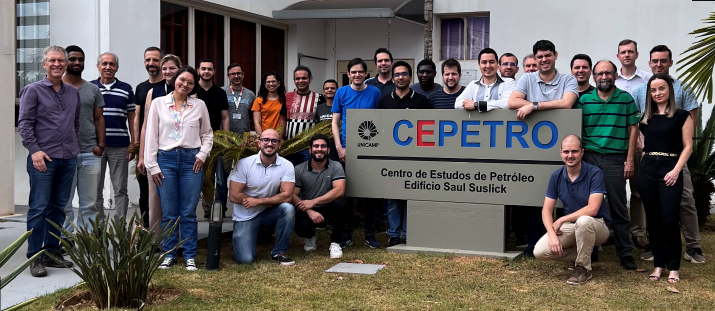
Calgary, Campinas, August 25, 2023
A three-year, Canadian $540,000 funding package from Energi Simulation is the focus of an Industrial Research Chair in “Short-term Reservoir Management and Digital Fields Concepts”, at the University of Campinas, UNICAMP, Brazil. Since the launch of Dr. Denis Schiozer’s chair in 2015, Energi Simulation has contributed $1.8 million Canadian to support his research team and program.


The chair will support a team of research associates and students to undertake leading edge research in innovative methods for closed loop reservoir management, integration of models and data, and short-term decisions.
“Professor Schiozer has outstanding support from industry members due to his focus on solving real world challenges. Therefore, we are thrilled to be able to continue our partnership with Dr. Schiozer and UNICAMP for another three years.” Duke Anderson, President, Energi Simulation.“
“The renewal of Dr. Denis Schiozer’s Chair Program is very important for our university. The chair contributes significantly to the development of solutions for the management of oil reservoirs and to the training of high-quality human resources in this area. Optimizing the production and use of non-renewable resources is part of the current effort to face the challenges of the environmental agenda. Many thanks to Energi Simulation for supporting this initiative.” Antonio José de Almeida Meirelles, rector, University of Campinas.”
The central idea of the Chair is to improve the methodology for life-cycle, short-term and real time decisions for petroleum field management based on UNICAMP’s 12-step methodology using data and simulation models of different fidelities. Some improvements were made in the past few years and this methodology is being prepared to be used in digital reservoir management.
Dr. Schiozer has over 30 years of experience in the area of reservoir management and simulation. Schiozer joined the faculty at UNICAMP in 1988 and holds a Ph.D. degree in Petroleum Engineering from Stanford University, an M.S. degree in Petroleum Engineering from University of Campinas (UNICAMP), a B.S. in Aeronautical Engineering from the Technological Institute of Aeronautics (ITA) and an M.B.A in Administration from Getúlio Vargas Foundation (FGV). He had more than 55 financed projects from the oil industries and has been coordinating UNISIM (Research group on Reservoir Simulation) for 25 years.
About UNICAMP
Unicamp was founded on October 5, 1966. It is a young institution but has already developed a strong tradition in education, research and services to society. The university is from the State of São Paulo that accounts for 40% of Brazil’s industrial capacity and 25% of its economically active population. Unicamp has three campuses which are home to 22 teaching and research Institutes and Schools. It also has a vast hospital complex; 23 interdisciplinary centers; two technical high schools; and a series of support units within a universe of about 50 thousand people in which thousands of research projects are carried out.
The Center for Energy and Petroleum Studies (CEPETRO), the graduate program in Petroleum Engineering and the Department of Petroleum Engineering (DEP) were created in 1987 in order to enable broad cooperation between the two institutions and promote research and the training of human resources in oil business. Today, CEPETRO has many research activities and many projects financed mainly by oil companies, state of São Paulo and ANP (Brazilian National Oil Agency).
Brazil has a law that establish that part of the revenues from the oil industry must be invested in research in the country; this had a significant impact on the research in energy and petroleum areas in the country and yield a high number of cooperation agreements of CEPETRO and oil companies.
UNISIM, one of the laboratories of CEPETRO, was created in 1996 by a partnership between Petrobras, UNICAMP and FAPESP, with an agreement between the University and the companies for technological innovation. UNISIM achieved 27 years and had, as main results: more than 130 PhD and MSc. students, more than 600 articles, 55 funded projects and several awards.
About Energi Simulation
Founded in 1978, Energi Simulation (formerly Foundation CMG) was initially developed at the University of Calgary in the Chemical and Petroleum Engineering Department. Energi Simulation promotes and financially supports research and development and students through research grants at universities around the world focusing on energy resource modelling. Energi Simulation plans to be the catalyst for investment of $250 million in the training of 2,000 graduate students and energy resource research by 2030. Energi Simulation currently has partnerships with governments, industry players and universities to drive unique multi-year support of student education and world leading researchers at universities in Europe, South America and North America.
For more information please contact:
Duke Anderson, President
duke.anderson@energisimulation.com
Energi Simulation
or
Denis J. Schiozer
denis@unicamp.br
CEPETRO/FEM/UNICAMP